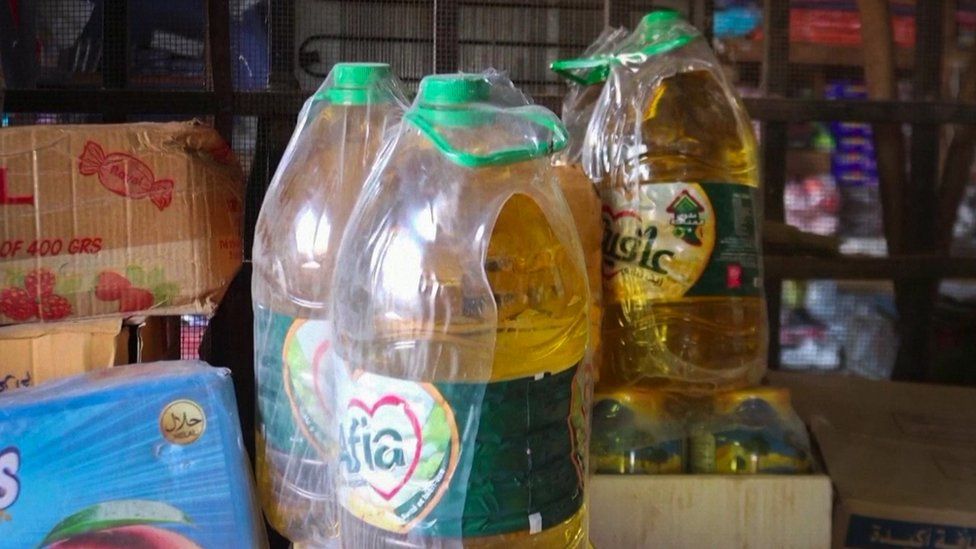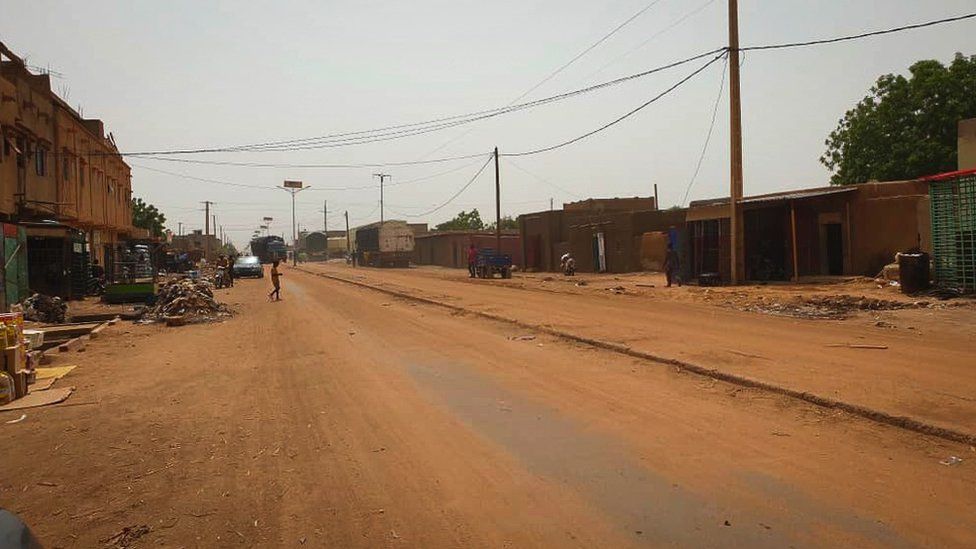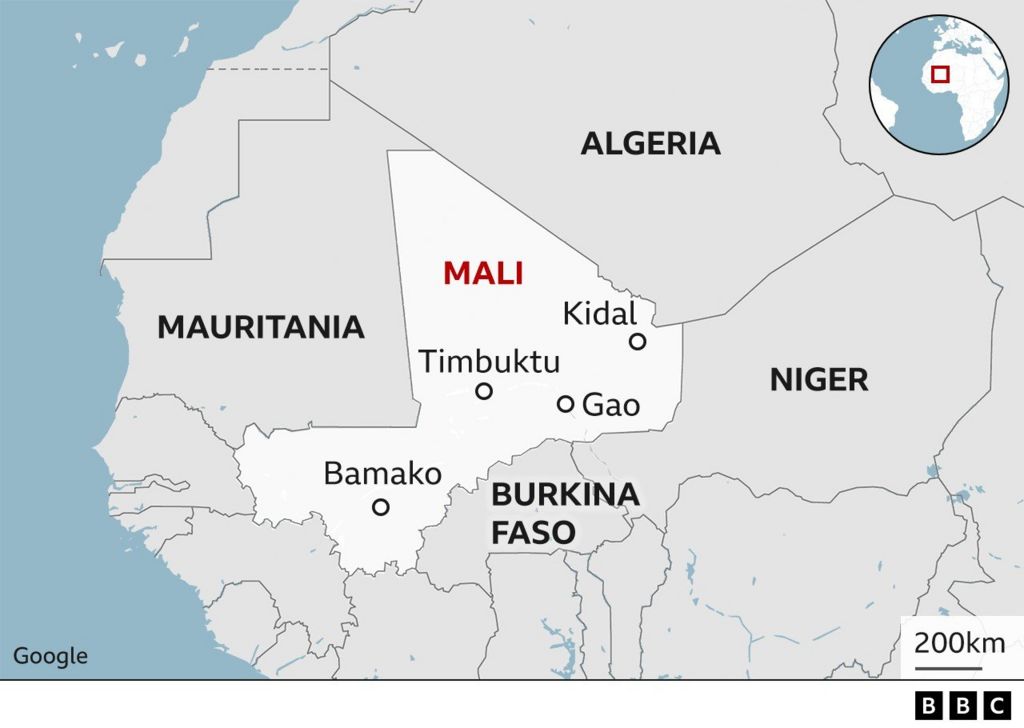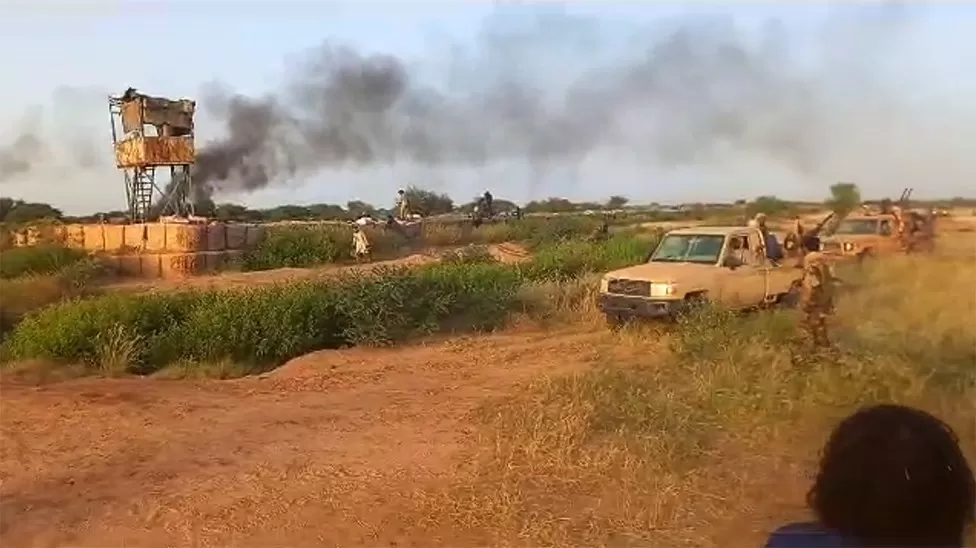The blockades have come as fighting intensifies between the army, who are backed by Russian Wagner mercenaries, and both Islamist groups and ethnic Tuareg separatist fighters.

For nearly two months, Jama’at Nusrat al-Islam wal-Muslimin (JNIM) has been trying to completely cut off the historic northern city of Timbuktu, preventing supplies from getting in.
“Dozens of trucks loaded with food and goods used to arrive daily in the city, but now, after the siege, nothing comes,” said Omar Sidi Muhammad, who lives in the city and works as a journalist.
Most of the supplies used to come to Timbuktu from Mauritania and Algeria.
“The price of food that was arriving from neighbouring countries doubled,” Muhammad said, adding that basic staples like sugar, flour, oil and baby formula had all been affected.
“There is a scarcity of fuel and its price has risen by 80%.”

The city has also been hit by rocket attacks launched by the militants.
“People are afraid but started to get very afraid, terrified, after the latest developments,” he added.
“Because of the danger, thousands of people had to leave.”
The UN estimates that 33,000 people have fled.
Timbuktu was occupied by Tuareg rebels following an uprising by separatists in 2012, but they were quickly pushed side by al-Qaeda-linked Islamic groups who imposed a strict form of Sharia, or Islamic law, on the city – forcing women to wear full-face veils, banning music and amputating the limbs of criminals. One couple was stoned to death for adultery.
So many people fear a repeat if JNIM does succeed in taking the city.
After a year of Islamist rule, Malian government forces, backed by French troops, re-took the city. But those French forces have left the country since the army seized power in 2021, and the UN’s peacekeeping mission is also pulling out.
Gao, the largest city in northern Mali, some 320 km (200 miles) east of Timbuktu, is also being blockaded by JNIM.
The militant group tightened its control over the past week, with a local resident, who didn’t want to be identified, telling the BBC that a lack of fuel was crippling the city’s electricity supply.

Homes are now only getting power for one hour a day.
“People are afraid because of the war,” the man said. “They are not happy with the rise of the food prices,” he said, adding that costs had doubled.
“Quite a lot of families have left the city.”
The city’s economy is normally centred around trade with neighbouring Niger and Algeria but the JNIM’s actions have caused many merchants to leave the city and left the streets deserted.
‘Ready for battle’
The blockade of the two cities has come as competing forces in Mali rush to fill the power vacuum caused by the departure of international troops.
The UN announced the end to its mission last June and said its forces would gradually leave the country by December, after Mali’s military junta refused to extend their remit.
This led to both government troops and Tuareg separatist groups vowing to occupy the force’s bases which lie in the north of the country, an area which has been under Tuareg control since a 2015 peace deal.
Fighting began in August over control of a UN site in the town of Ber and has intensified since then. JNIM has also taken advantage of the chaos to launch its own attacks on government forces.
Tuareg groups say they have attacked five government military bases and said in social media posts last month that they aim to take control of the whole of northern Mali, where they want to establish an independent state, called Azawad.
At the same time, the military government has vowed to re-take control of the entire country, and on Monday sent a large military convoy towards Kidal, a northern town which is the main Tuareg stronghold.
“We consider security throughout the country to be an absolute priority,” Col Malick Diaw, a senior figure in the junta, told the interim legislative assembly earlier this month.
“We are working together with [the army] to reconquer our lands, which have long been occupied by hordes of barbarians with no faith, law or religion, whose sole aim is to cause suffering and death to innocent people who only aspire to live in peace.”
Mohamed Mouloude Ramadan, a spokesman for the coalition of Tuareg groups called the CMA, told the BBC: “We will stop them, we’ve been getting ready for this for a long time.”
“We’re getting more fighters ready for the battle.”
Regional crisis
The conflict is threatening to spread outside Mali and across Africa’s Sahel region, as both the government and Tuareg rebels have called for international support.
Tuareg groups in Libya, Algeria and Niger have voiced their solidarity for Mali’s separatists, with one Nigerien rebel leader calling on fighters “to join them on the front line”.

Ben Bella, a leader of the Tuareg CMA alliance, told the BBC: “These statements will be followed by the arrival of fighters from Niger, Algeria and Libya to support us in the battle.”
“This solidarity will confront Russian expansion in the region through the coup governments in Mali, Niger, and Burkina Faso.”
Three weeks ago, Mali’s junta signed a mutual defence pact with Burkina Faso and Niger, each vowing to help each other against armed rebellions or external aggression, following a threat by other West African countries to use force to restore civilian rule in Niger.
All three countries are under military rule, following coups within the past three years.
These have led to French military forces, which were providing security assistance against the Islamist insurgency raging in the three neighbours, pulling out of Mali and Burkina Faso, with preparations to leave Niger underway.
Mali has since turned to Russia’s Wagner mercenary group for military help, and there have been rumours that Niger and Burkina Faso may follow.
Dr Alex Vines, director of the Africa programme at the Chatham House think tank, said that with Niger, and especially Burkina Faso, having their own internal security problems, they are unlikely to be able to assist Mali’s armed forces.
“What this alliance is unable to do is to provide military solidary to each other,” he said.
He added that Wagner mercenary forces did not appear to be able to fill the gap left by French forces and that “the Russians have been struggling and the Russians are very overstretched, given their commitments elsewhere particularly with the conflict in Ukraine”.
Dr Vines warned that failing to deal with the crisis in northern Mali “makes the junta in Bamako vulnerable” and there might be another coup “if the military junta fail to respond to the security challenges they are now facing”.
Source: BBC NEWS




















Add Comment